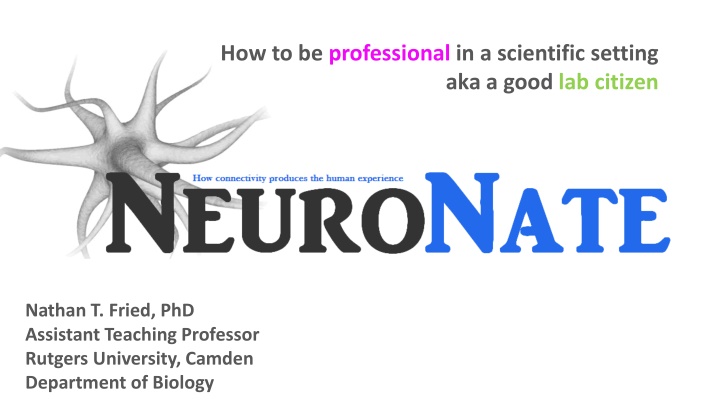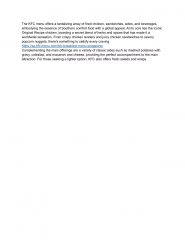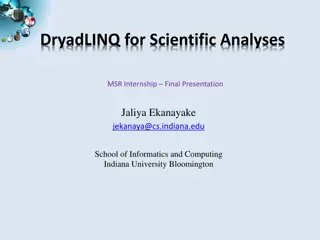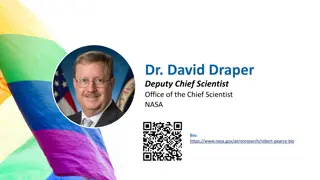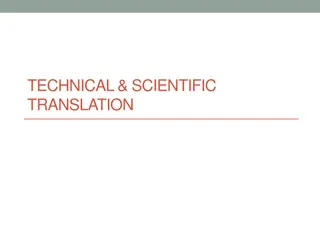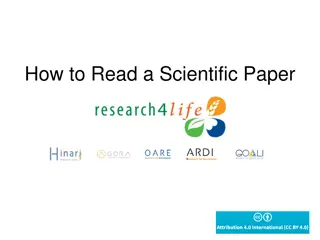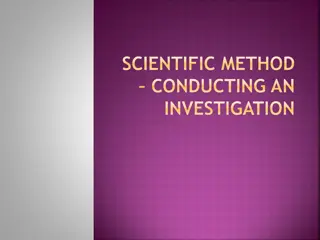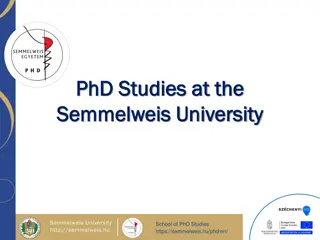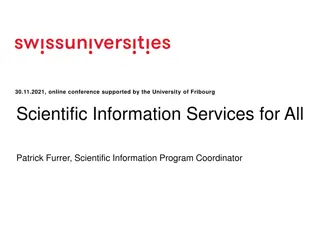Being a Professional in a Scientific Setting: Insights from Dr. Nathan T. Fried, PhD
Strive to be a good lab citizen by embodying the 8 "BEE" principles: Be Cool, Respectful, Engaged, a good Lab Rat, Prepared, Organized, Realistic, and Responsible. Dr. Nathan T. Fried emphasizes the importance of mutual support, inclusivity, preparation, engagement, and respect in a scientific environment. It's essential to value collaboration over competition, maintain a diverse and respectful workspace, actively participate in discussions, and be responsive to communication within a research setting.
Uploaded on Sep 26, 2024 | 3 Views
Download Presentation

Please find below an Image/Link to download the presentation.
The content on the website is provided AS IS for your information and personal use only. It may not be sold, licensed, or shared on other websites without obtaining consent from the author.If you encounter any issues during the download, it is possible that the publisher has removed the file from their server.
You are allowed to download the files provided on this website for personal or commercial use, subject to the condition that they are used lawfully. All files are the property of their respective owners.
The content on the website is provided AS IS for your information and personal use only. It may not be sold, licensed, or shared on other websites without obtaining consent from the author.
E N D
Presentation Transcript
How to be professional in a scientific setting aka a good lab citizen Nathan T. Fried, PhD Assistant Teaching Professor Rutgers University, Camden Department of Biology
To know the science, you ve gotta know the people.
The 8 bees of a happy lab hive 1. BEE Cool 2. BEE Respectful 3. BEE Engaged 4. BEE a good lab rat 5. BEE Prepared 6. BEE Organized 7. BEE Realistic 8. BEE Responsible
BEE Cool Science is not done in a silo. HELP each other! Sure, you re smart. But don t flaunt it. It contributes to the imposter syndrome of others. Don t compete. It s not healthy. It s always WE , not I in science. Give credit to your colleagues! We re all part of the same ecosystem (student, trainee, scientist, techs, PIs, custodial staff, animal facility staff). Call them all your colleagues!!! Science is already HARD enough, emotionally, intellectually. Don t make it any harder than it has to be.
BEE Respectful We re all different. Respect that. Be inclusive! Don t form cliques. Extend invitations to everyone for special moments (lunch, meetings, etc) Lab members don t have to be your friend. They re your colleagues. Don t push them into your mold of what you think they should be. Biomedical already sciences lack diversity. Please don t contribute to it with racism, classism, or bias. Be careful with jokes. You re not part of the in crowd just yet. Don t put on loud music. Don t gossip. Be open to criticism and criticize others. Don t take it personally when someone criticizes your work. Recognize we re all here to help each other do better science. Cell phones are special form of communication. Only use them in emergencies. They re not for chatting. If it can be said in an email or slack, send it there
BEE Engaged When you present, present WELL. I d often take, as a postdoc, 5 hours to prepare a journal club. That s just how long it takes! It ll take you longer. Actually read the paper before others give journal clubs. Otherwise, you ll be lost. Take notes the entire time during journal club and prepare to ask 1 question during every presentation. That s your goal. You don t have to every time. But try your best. When in a virtual session, tell those in attendance you re going to be writing notes. Respond IMMEDIATELY (within reason) to emails. Don t wait. Research isn t like a normal job. It s expected you ll be doing work/reading outside of your lab hours. Down time isn t your time, unless communicated. Use it to help out or read papers. Be present. Nothing to do in lab today? Bring your other work to the lab.
BEE a good lab rat Clean up, especially your used equipment and dishes. Keep detailed notes for EVERYTHING you do. TAKE NOTES. Your memory sucks Respect the TIME of a postdoc or grad student. They re busy. Don t come to them for everything. Try to figure it out yourself first. Never leave something empty. Report if it ran out. Don t just listento instruction. ASK QUESTIONS! It s better if I have to explain something an extra 10 minutes than if you have to come back to me 2 days later to hear the whole thing again. Embrace your ignorance. They re not a stupid question. Seriously EMBRACE YOUR IGNORANCE. It s okay if you don t know something. Your bench space isn t actually yourspace. We re all working together. Don t be offended if someone needs to use it.
BEE Prepared Be proactive. Help where you think you can help. Show up on time, even if the PI is super cool and laid back . Respect people s time. Experimental timepoints aren t flexible. ACTUALLY read those review articles the PI gives you on day 1. We can tell if you don t understand. Especially that FOUNDATIONAL stuff. Lab schedules are unpredictable. Be open to it. Don t make horrible looking slides. Get the science right, but make the slides look professional. White background, soothing transitions, nice images.
BEE Organized Have a contract of expectations or make expectations known. Be clear with the hours you have free. Give them your schedule and tell them how many hours a week you can work. 3 credits of time means 9 hrs/week for 15 weeks. Tell your PI about vacation time or changes in availability immediately. Keep your bench and experiments organized. If you re not organized, we ll get confused, and all your hard work will be for nothing. Label your stuff!!!
BEE Responsible If you break something, TELL SOMEONE. Accidents happen, cover ups shouldn t. If you mess up an experiment, TELL SOMEONE. We need to know if there was a problem in the calculation. It might help explain weird results. Speak up if you re concerned about something (research ethics). These experiments have REAL-LIFE implications. They re not us just playing around. This will contribute at its greatest to the creation of cures or at its minimal a publication that might lead other scientists down a path. Imagine if you re cover up leads to a grad student wasting their time pursuing a rabbit hole for 6 years! Bad news is important and a critical eye is essential. Don t just give the PI good news. It s so easy to make minor results seem bigger than they are just because you want to please your PI.
BEE Realistic Promise two weeks, deliver in one. Don t overpromise. You can t do 15 western blots on Sunday. Don t do too many experiments at once. It ll all fall apart. I don t know but I ll figure it out is an acceptable answer. Don t lie about the info you don t know just to show you know it. Fake it til you make it doesn t work in research.
The 8 bees of a happy lab hive 1. BEE Cool 2. BEE Respectful 3. BEE Engaged 4. BEE a good lab rat 5. BEE Prepared 6. BEE Organized 7. BEE Realistic 8. BEE Responsible
